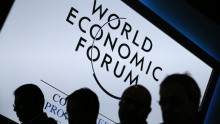Increasing probability of risks in all areas, from the environment to the economy and geopolitics, public life and technology, is likely to shape the global agenda for the coming year, the World Economic Forum (WEF) Global Risks 2016 Report stresses.
In this year’s annual survey, almost 750 experts assessed 29 separate global risks for both impact and likelihood over a 10-year time horizon. Such a broad risk landscape is unprecedented in the 11 years the report has been measuring global risks.
More and more evidence is appearing to show strengthening interconnections between risks, such as the connections between the climate change and forced migration or worsening international security, and these interconnections quite often cause serious and unpredictable consequences.
The experts interviewed by the WEF identified a failure of climate change mitigation as the risk with the greatest potential global impact. For the first time since 2006, environmental risk took first place in the ranking, pushing the likelihood of weapons of mass destruction being used to the second position. It has also been recognized as more dangerous than the third-placed water crisis, fourth-placed large-scale forced migration, and a sharp change in energy prices, which took the fifth place.
However, it is large-scale forced migration that leads the list of the most likely risks, and probability and impact strength of this risk are also growing faster than of any other. On that metric, it is followed by weather disasters (placed second), the effects of climate change (placed third), interstate conflict with consequences on a regional scale (placed fourth), and major natural disasters (placed fifth).
For the second year, the WEF Global Risks Report also provides data on how businesses perceive global risks in their countries. This year’s analysis uncovered patterns common to both advanced and emerging economies. Unemployment and under-employment appears as the risk of highest concern for doing business in more than a fourth of the 140 economies covered, and is especially featured as the top risk in two regions, sub-Saharan Africa and the Middle East and North Africa. The only region where it does not feature in the Top 5 is North America.
Energy price shock is the next most widespread risk, featuring in the Top 5 risks for doing business in 93 economies. Cyber attacks feature among the Top 5 risks in 27 economies, indicating the extent to which businesses in many countries have been impacted already by this rising threat. This risk is most serious for businesses operating in North America as well as in Japan, Germany, Switzerland, and Singapore.
The 2016 WEF will take place in Davos on January 20-23.








